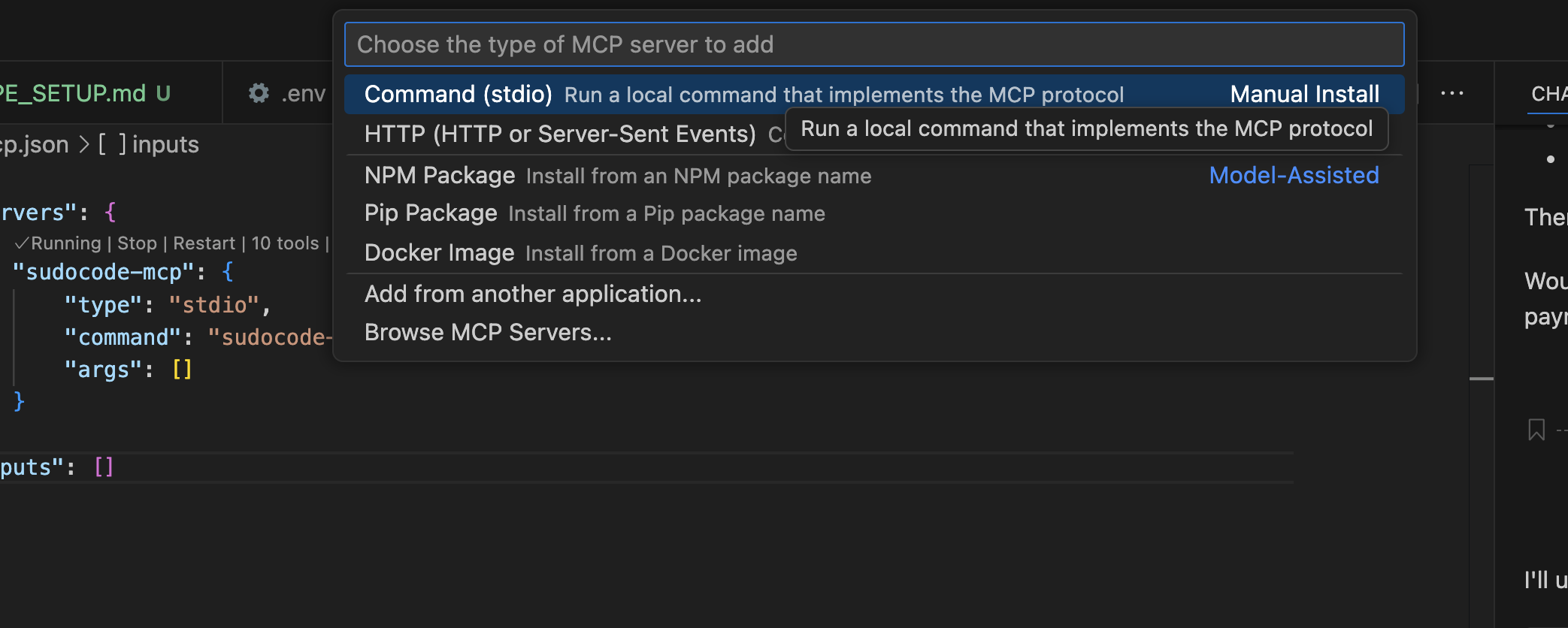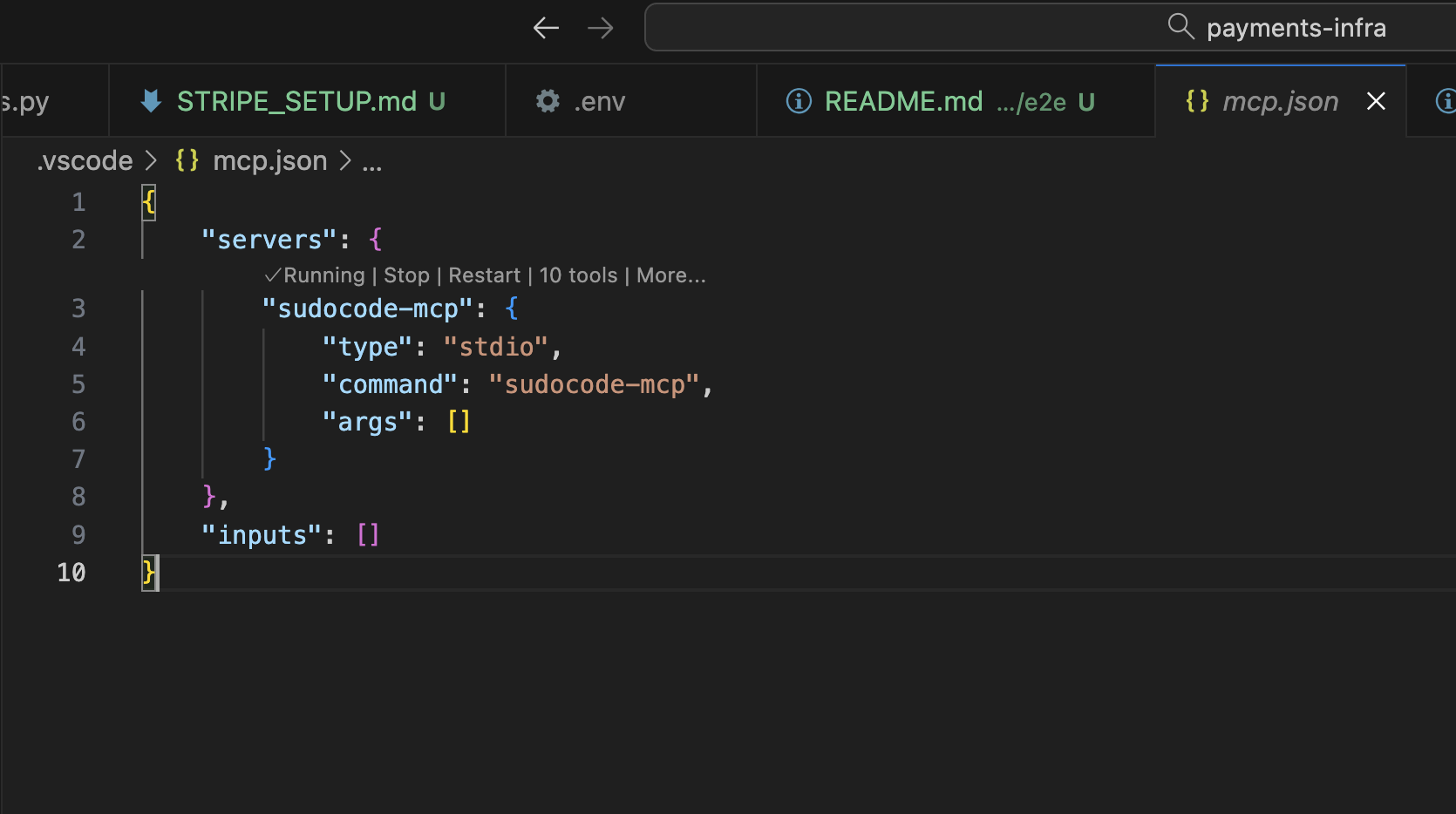Step 1: Install sudocode
Step 2: Initialize project
Step 3: Configure your agent to use sudocode
Set up the sudocode MCP integration with your AI agent.Claude
Claude
Version requirement: Make sure you’re running an up to date version of Claude Code.Check your version:If your version is lower than 2.0.35, update Claude Code:
Claude Code is now configured with sudocode! The plugin automatically handles MCP server configuration and working directory detection.
Codex
Codex
Cursor IDE/CLI
Cursor IDE/CLI
Cursor CLI uses an MCP configuration file in the
.cursor directory of your project root.Create .cursor directory
In your project root directory, create a
.cursor directory if it doesn’t exist:Create or edit .cursor/mcp.json
Open or create
.cursor/mcp.json and add the following configuration:If you already have other MCP servers configured, just add the
"sudocode-mcp" entry inside the existing "mcpServers" object.Enable the MCP Server (IDE Only)
Note, this step is only relevant if you want to communicate with sudocode inside of the cursor IDE, in addition to the CLI.After creating the configuration, enable the MCP server in Cursor:Option A: Click Enable (when prompted)When Cursor detects the new MCP configuration, an Enable button will appear on the left side. Click it to activate the sudocode MCP server.
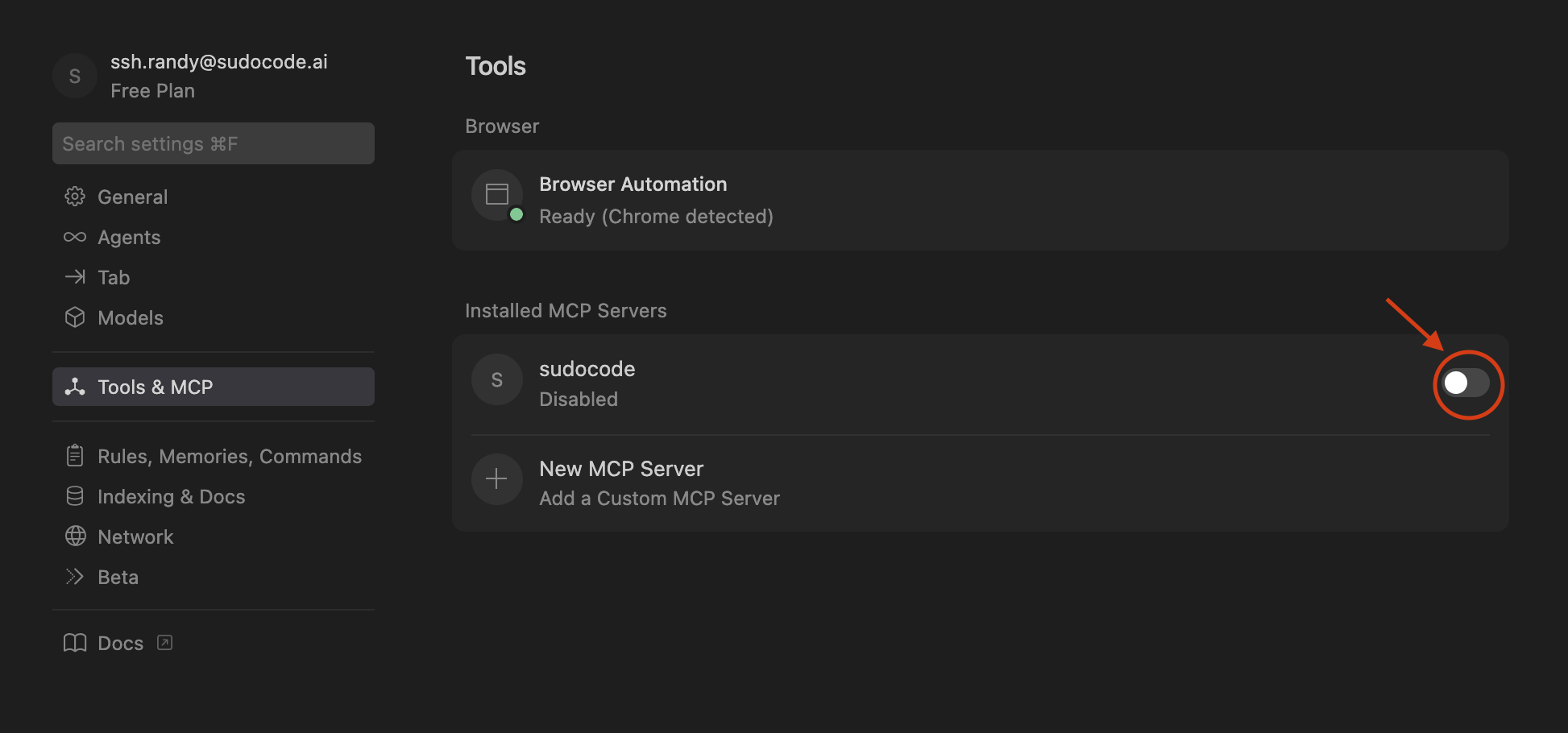

- Go to Cursor > Settings > Cursor Settings
- Enable the MCP server

Restart may be required to see the MCP Server under the list of tools! Once you enable the MCP server, it will be active immediately.
Verify Setup
CLI Flow
CLI Flow
Test that sudocode is working via the Cursor CLI:If the setup is working, you’ll see Cursor use the sudocode MCP tools:
Expected output
Expected output
IDE Flow
IDE Flow
If you want to use sudocode within the Cursor IDE (not just the CLI), you can test it by asking Cursor to create an issue:If the setup is working, you’ll see Cursor use the sudocode MCP tools: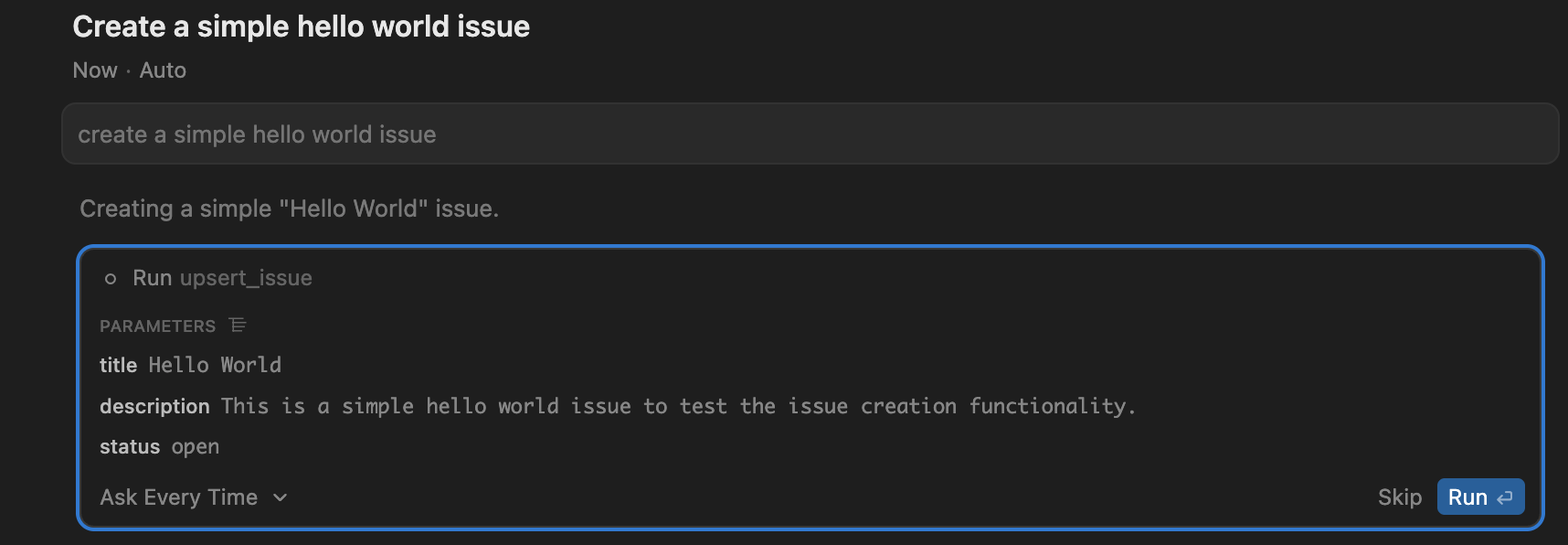

Cursor is now configured with sudocode! The MCP server will automatically run when you use sudocode tools in Cursor.
GitHub Copilot CLI
GitHub Copilot CLI
Configure MCP Server
In the Copilot CLI, run:This will open the MCP server configuration screen:Fill in the following:
- Server Name:
sudocode-mcp - Server Type: Select
[1] Local(default) - Command:
sudocode-mcp - Tools:
*(default, for all tools)
Ctrl+S to save the server configuration.GitHub Copilot CLI is now configured with sudocode!
Optional IDE Support
Optional IDE Support
If you want to use sudocode within VS Code (not just the CLI), you can set it up using the Command Palette or by creating a configuration file:Method 1: Command Palette (Recommended)Method 2: Manual ConfigurationAlternatively, create Then reload VS Code to apply the configuration.Verify SetupTest that MCP tools are available in VS Code by opening GitHub Copilot and asking:
Open Command Palette
Press 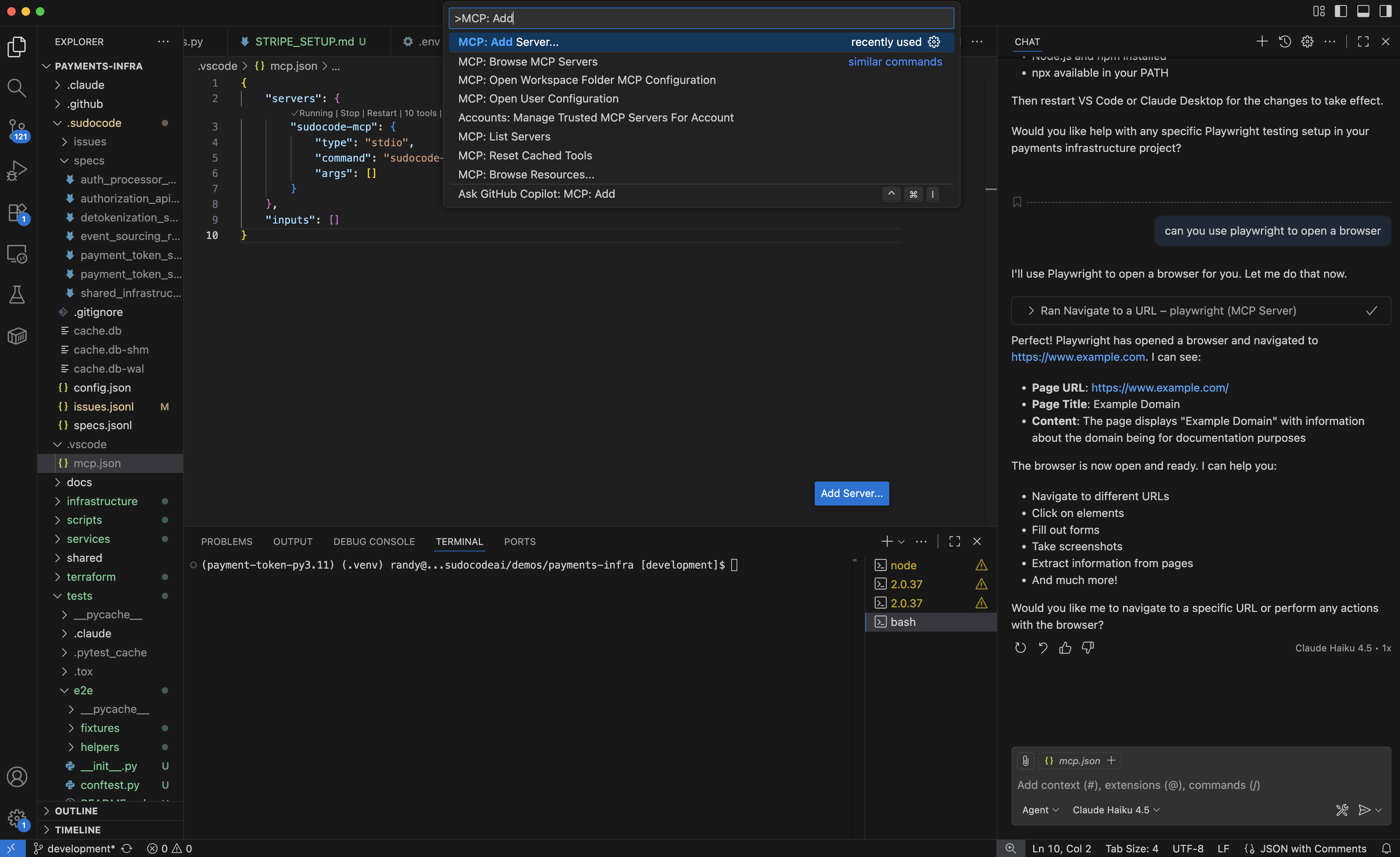
Cmd+Shift+P (macOS) or Ctrl+Shift+P (Windows/Linux) to open the Command Palette.Type and select:
.vscode/mcp.json manually:You should see a tool call from sudocode. You’re all set!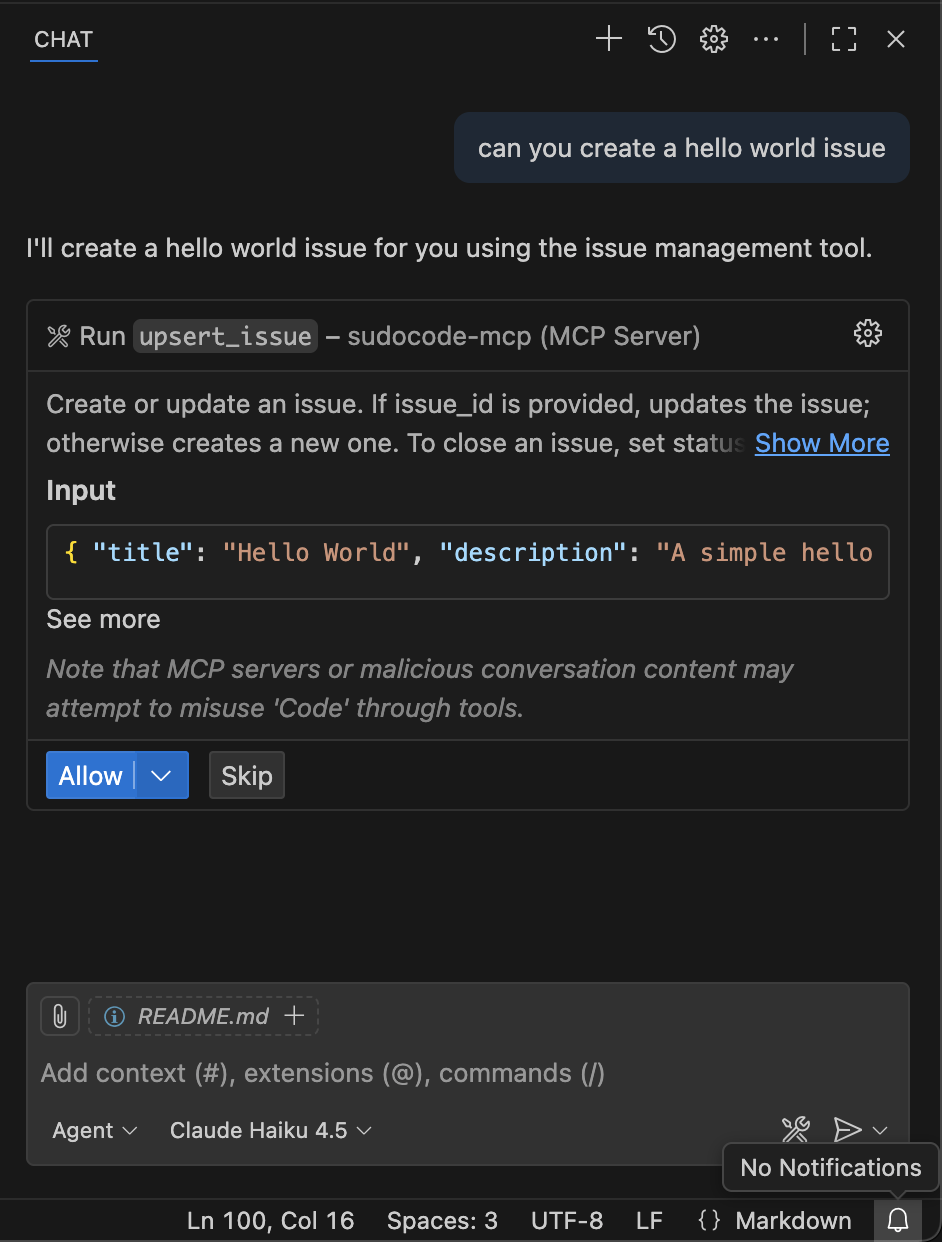

Step 4: Create a test issue
With the MCP integration configured, you can now use your agent to create and link spec or issue docs as needed. No extra steps required. Start a conversation with your agent to define work:sudocode/ directory of your project. You can continue discussing, refining, and breaking down the work entirely through your agent.
Step 5: Visualize with the web UI (optional)
To get a visual overview of your specs, issues, and their relationships, start the sudocode web server:http://localhost:3000. Navigate there in your browser to see the project selector:





